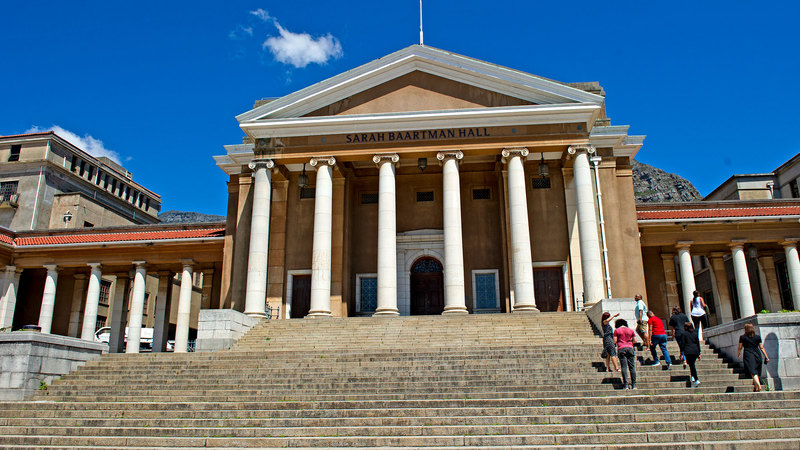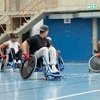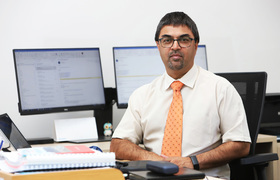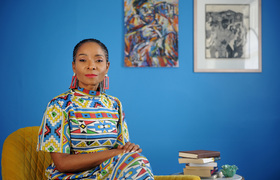‘COVID-19 will test our solidarity and commitment’
15 May 2020 | Story Niémah Davids. Photo Lerato Maduna. Read time 5 min.“[COVID-19 presents] an opportunity for us to rethink how we teach and learn, how we do research and how we apply what we learn, recognising that our students will be working with us to build a new, post-COVID-19 world.”
This was the positive message University of Cape Town (UCT) Vice-Chancellor Professor Mamokgethi Phakeng shared with the university community during an online staff assembly on Thursday, 14 May.
The virtual event was convened to communicate the university’s overarching response to the COVID-19 pandemic and to share the executive’s thinking on a phased return to work on campus.
“The COVID-19 pandemic has brought into sharp focus the rapidly changing world. These challenges will test our solidarity and commitment, but together we can overcome each one,” Phakeng said.
Over the next few days UCT News will publish a series of articles that unpack how the university is responding to COVID-19. They will examine the phased return to campus, teaching and learning, student affairs, research, 2020 exams and 2021 admissions.
Navigating the storm
The COVID-19 pandemic continues to adversely affect many sectors of society, she added, including the higher education industry in South Africa and around the globe.
“This is a challenge we share with our students because higher education cannot be about staff on the one side and students on the other side.”
UCT’s challenges are not unique – tertiary institutions around the world are facing the same set of uncertainties. Now is the time for students and staff to pull together.
“This is a challenge and opportunity we share with our students because higher education cannot be about staff on the one side and students on the other side. The university is a community that includes all of us,” she said.
The UCT executive’s immediate focus is to salvage the academic year and to ensure all students complete the year successfully. A number of plans are in place to achieve this, among them emergency remote teaching and learning.
“We are thinking of solutions for all our students, including those whose environments are not suitable for learning, those living in poverty and those living with different kinds of disabilities.
“We are working together to meet the challenges. It’s not been easy.”
Plans under way
Emergency remote teaching and learning has been in effect since 28 April, and Phakeng said that online lessons will continue to help both students and staff in the upcoming terms.
“This new way of learning is stressful for all of us, but especially for students who may feel isolated from their instructors, and tutors from the camaraderie of fellow students.”
She commended the Centre for Innovation in Learning and Teaching (CILT) in the Centre for Higher Education Development (CHED) for developing innovative online teaching tools under strict time constraints to ensure remote teaching runs smoothly.
“I hope we can use online teaching as a way to free teaching staff in order to engage more meaningfully with students on a personal level. Your influence as role models remains as important as ever,” she added.
Health and safety
The health and well-being of staff and students is of utmost importance. The university has taken the necessary steps to ensure staff have the support they need, even while off campus, she said, and are encouraged to make use of the services available.
While everyone remains eager to return to work, Phakeng said UCT remains guided by national government directives and stressed that the executive will not return staff to campus (even in a phased approach) unless it is safe to do so.
“Of course, we would much rather be together, and social distancing is demanding.”
In the meantime, she urged staff to reach out to their colleagues, to provide a community of care and to maintain the “sense of camaraderie” that would otherwise have existed in the office.
“Of course, we would much rather be together, and social distancing is demanding. Like you, I would much rather sit with my colleagues around a conference table. But like you, I am finding ways to stay in touch online,” she said.
A new UCT
Thanks to the hard work and commitment from staff, a “new kind of UCT is emerging from this crisis”.
She thanked staff for demonstrating “excellence, resilience and innovation” during a difficult and uncertain time.
“Campus will be quiet for some time, even with the staggered return of the South African economy.
“[But] we are not going to just survive this crisis; we are going to thrive through it, and we are going to help South Africa thrive as well.”
 This work is licensed under a Creative Commons Attribution-NoDerivatives 4.0 International License.
This work is licensed under a Creative Commons Attribution-NoDerivatives 4.0 International License.
Please view the republishing articles page for more information.











